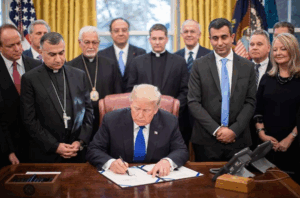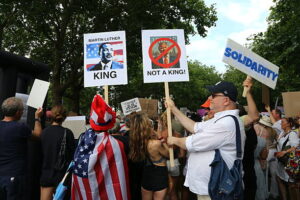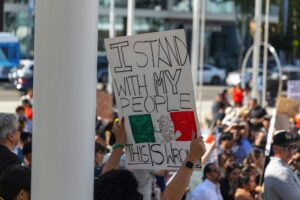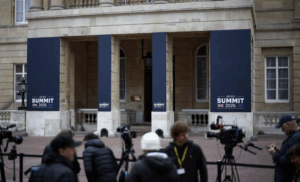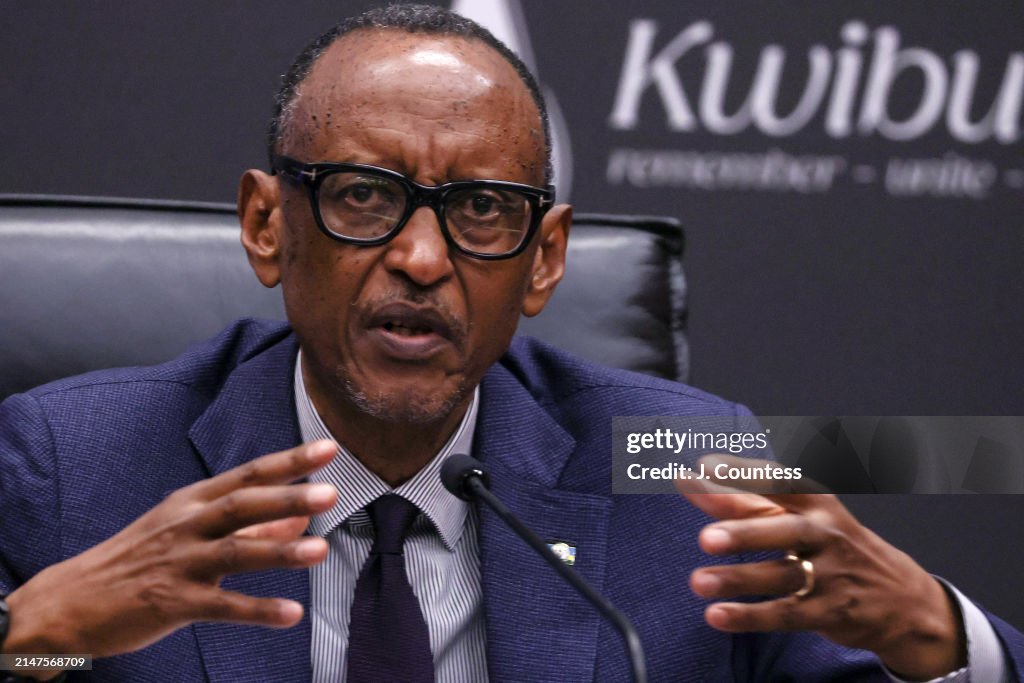Between April 7 and July 17 1994 the Tutsi ethnic minority was massacred by the extremist Hutu government in Rwanda. As tensions between the two ethnic groups had progressively worsened, the death of the Hutu president Juvénal Habyarimana on April 6 1994 marked the beginning of the government’s murderous rampage. The number of victims was at least 800.000 in 100 days according to the United Nations. To lift the veil on France’s responsibility for the genocide, Macron asked fourteen historians to produce a report in 2021. Led by Vincent Duclert, the historians did highlight France’s « heavy and crushing responsabilities ».
The question of France’s responsibility in the Tutsi’s genocide is raised again thirty years later. The choice of words when its comes to France’s role is more important than ever. How much responsibility does France bear for the massacre of the Tutsi? Was the French government of the time complicit? What is the situation thirty years after the genocide? Has Rwanda rebuilt itself thirty years later?
The duty to remember
The survivors of the genocide want to obtain justice as well as an apology from France for its involvement in the massacre. Yet France’s position on this issue does not include to recognise a complicity or to give any excuses. It is essential to know the ins and outs of this genocide in the name of the hundreds of thousands of victims. Some have lost their entire family and are the only survivors. Others did not even have the chance to see one of them survive.
On the 7th of April 2024, a commemoration was held in Kigali, thirty years after the beginning of the massacre. Stéphane Séjourné, the head of French diplomacy was on site. Emmanuel Macron’s absence was particularly noticeable, especially as the thirtieth anniversary commemoration is of great importance for the country’s reconstruction. Paul Kagame, Rwanda’s current president, has been at the head of the country for thirty years and led the commemorations. On April 7, he rekindled the flame at the Gisozi memorial. There, the remains of more than 250,000 Tutsi lie buried. 100 days of commemoration have begun in Rwanda on April 7 to honor the memory of the genocide’s victims.
You can find the speeches of both Rwandan President Paul Kagame and French President Emmanuel Macron on April 7 2024 by clicking on this link:
Thirty years later: how does the country rebuilt itself?
After the horror of 1994, the challenge of rebuilding the Rwandan nation was very real, and remains so today. The country tried as much as it could to suppress ethnic differentiation between Tutsi and Hutu after the civil war. After 1994, the Rwandan government implemented a political project of reconciliation with the aim of recreating a united Rwandan nation after the trauma. In particular, it has banned the depiction of ethnicity on identity cards. The message of peace is of great importance in the country, especially in schools, where the country’s youth are educated.
Yet, while the economy and tourism have developed impressively in Rwanda, the trauma of the genocide is still present. Thirty years is not such a long time. While the government focuses on reconstruction and development, the duty of remembrance is also a pillar. There are many places of commemoration, both nationally and locally. Near the Gisozi memorial in Kigali, the museum dedicated to the Tutsi genocide is a place full of emotion and history. The word “Kwibuka” written on the entrance, which means “memory” in English, takes on its full meaning. What is clear is that the testimony of survivors must continue to be heard, and must not be lost. Justice must also be done in order to move forward.
The French state: what are its responsabilities?
Since 1994, France has been accused of having played a role in the genocide of the Tutsi through a financial, military and diplomatic support to the extremist Hutu government. Former French leaders are also accused of having continued to give their support during the genocide, making them complicit in the massacre. Indeed, the report of the historians highlights the “blindness” of François Mitterand, who was France’s president during the genocide.
However, the report’s authors have declared that calling the former French leaders “accomplices” of the genocide was not their role. They added that if there was a complicity of the French state, it would be up to the courts to decide. Moreover, the French government has always avoided talking about France’s guilt or complicity in the Tutsi genocide, without refusing to acknowledge a responsibility on their part.
A huge step forward was taken in 2021, when Emmanuel Macron acknowledged in a speech “France’s responsibility in a spiral that led to the worst ». The report was also a long awaited step forward in the official recognition of France’s responsibility in the genocide. Paul Kagame did welcome the report back in 2021. He considered that “it also marked a change and a willingness on the part of France’s leaders to move forward”. However, Emmanuel Macron did not attend the April 7 2024 commemoration himself, which shows that much remains to be done to ease relations between the two countries.
To read an article about the 2021 official visit of Emmanuel Macron in Rwanda to commemorate the Tutsi’s genocide: EMMANUEL MACRON AU RWANDA: “IBUKA, SOUVIENS-TOI”



